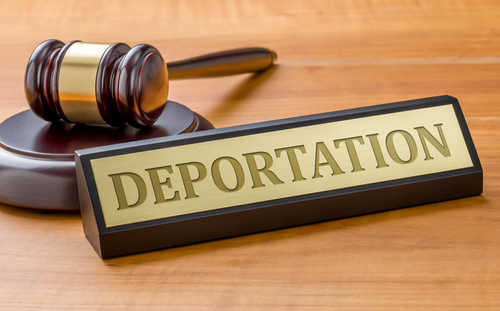
Nine EU nations are demanding urgent changes to Europe’s human rights laws as migrant criminals increasingly evade deportation due to legal loopholes that prioritize offenders’ rights over public safety.
Key Takeaways
- Nine European leaders, led by Italy’s Giorgia Meloni and Denmark’s Mette Frederiksen, are pushing to revise the European Convention on Human Rights to facilitate deportation of criminal migrants
- Leaders argue that current interpretations by the European Court of Human Rights have severely limited nations’ ability to remove dangerous foreign criminals
- The coalition includes Austria, Belgium, Czechia, Estonia, Latvia, Lithuania, and Poland, reflecting growing cross-European concern about migration policy failures
- The initiative seeks greater national autonomy in deportation decisions and new monitoring protocols for criminals who cannot be expelled
- The proposal addresses concerns about hostile states weaponizing migration, citing Lithuania’s legal action against Belarus for facilitating illegal border crossings
European Leaders Challenge Outdated Human Rights Framework
A powerful coalition of nine European Union nations is challenging decades-old human rights conventions that they argue have become obstacles to public safety. The group, which spans both conservative and liberal governments, contends that the European Court of Human Rights has dramatically expanded the original scope of the European Convention on Human Rights in ways that prevent nations from effectively managing criminal migrants. This unprecedented joint initiative signals growing frustration with supranational interpretations that hamstring national sovereignty on crucial security matters and migration control.
“open a political debate on some European conventions to which we are bound and on the capacity of those conventions, a few decades after they were written, to address the great issues of our time, starting precisely with the issue of the migration phenomenon” Stated Giorgia Meloni, Italian Prime Minister.
The political movement represents a significant shift in European politics, where challenges to human rights frameworks were once politically untouchable. The coalition includes right-leaning governments like Italy and Austria alongside traditionally progressive administrations like Denmark. Italy’s conservative Prime Minister Giorgia Meloni has emerged as a leading voice, highlighting the failure of post-World War II conventions to address modern migration realities that the original drafters never anticipated, including mass migration facilitated by hostile foreign powers.
National Security vs. Individual Protections
At the heart of the debate is the growing frustration with court decisions that block deportations of migrants who commit serious crimes. Current interpretations prohibit returning criminals to countries where they might face mistreatment, regardless of the danger they pose to host communities. The coalition argues this creates an untenable situation where member states are forced to harbor individuals who threaten public safety while having few legal options for monitoring or controlling them once they’ve served their sentences.
The coalition seeks greater flexibility in balancing human rights protections with public safety concerns, particularly when criminal migrants have weak ties to their host country but substantial criminal records. Their proposal suggests that the current application of human rights principles has created a perverse system where criminal behavior can effectively grant greater residency protections than law-abiding migrants receive. Leaders from the nine nations argue that a more balanced approach would provide clear pathways for expelling those who repeatedly violate their host nations’ laws.
Addressing Migration Weaponization
The statement specifically addresses growing concerns about hostile nations weaponizing migration to destabilize European countries. Lithuania’s recent legal action against Belarus for orchestrating mass border crossings highlights this evolving threat. European leaders argue that conventional human rights frameworks developed during the Cold War never contemplated scenarios where foreign powers would deliberately channel migrants across borders as political weapons, creating new security challenges that require updated legal responses Stated Mette Frederiksen.
This initiative represents the most significant challenge to Europe’s human rights framework in decades, with unprecedented cross-ideological support suggesting deep structural problems with current policies. While human rights organizations have criticized the proposal, supporters argue that failing to reform these systems undermines public confidence in government institutions and fuels growing support for more extreme anti-immigration positions. The coalition’s proposal aims to restore credibility to migration systems through pragmatic reforms that balance individual rights with community safety.




